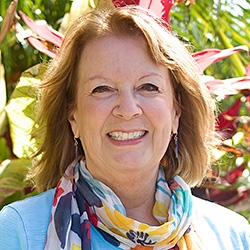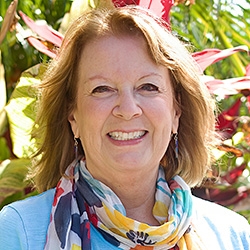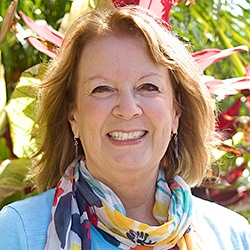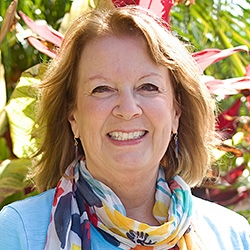
Search Results: men
-
- Increase your sense of connection and compassion, even in the heat of conflict
- Deepen your access to needs consciousness and the powerful energy of gratitude
- Learn how to make powerful requests that support the flow of connection
- Expand your self-empathy skills to help you shift away from reactivity
-
- Learn how to set up and maintain effective systems
- Acquire tips for harnessing community buy-in and the energies of key people
- Transform tension and anxiety into peaceful, life-enriching energy
- Remain grounded and confident when facing any kind of conflict
-
Trainer Tip: We may communicate indirectly when we worry about hurting someone’s feelings. Instead, commit to being direct with compassion, love, honesty, and respect to both yourself and others. They may not enjoy what you say, but at least they'll know where you're coming from. Being true to yourself, you can be true to your relationships. And it can build trust.
-
Are you a spiritual seeker who longs for an approach that supports compassion for self as well as profound spiritual transformation? If so, you’ll enjoy this telecourse recording with Robert Gonzales and Leo Sofer as they engage in dynamic discussions about NVC as a spiritual practice.
-
Often patients need enough emotional space to reduce any inner stuckness in their situation. They need to do this before they can adequately absorb information or effectively take next steps. Empathy can help with this. Empathy requires an intention to connect non-judgmentally. This gets better with practice. Read on for examples of how a situation can play out with, and without, empathy. And the difference it makes in healthcare.
-
-
Trainer Tip: Someone’s strategy for meeting needs may look different from yours, but it doesn’t mean they aren’t meeting them. This can happen when they appear to be messy and disorganized, but from their perspective they have it organized. It's just less apparent to you how they have organized it. Read on for a related anecdote.
-
Trainer Tip: Every single time you say or do something, even when you experience pain or regret, you are trying to meet a need. Forgiveness begins when we acknowledge the needs we were trying to meet in the situation.
-
Trainer Tip: Violence results from thinking that others caused our pain and deserve to be punished. The cause of our feelings is related to our own needs in the moment. What happened is the stimulus. Notice this when you are tempted to blame other people for your feelings, and try to discover your unmet needs.
-
CNVC Certified Trainer Miki Kashtan explains how naturalizing NVC language involves self care and begins with accepting what is true in the moment.
-
How do you repair a relationship when your words or actions unintentionally impact another in a negative way? And what keeps you from apologizing? Join Lore to explore – and answer – these questions and more!
-
Have you ever said 'I'm Sorry' to someone, only for it to leave you feeling disappointed and lacking connection? In some cultures, saying 'I'm sorry' has become too easy and is used for all sorts of situations. Whether it's just to excuse yourself as you pass in front of someone taking a photo, or if you've truly hurt a close friend. So when we really need to communicate regret, how can we do so in a way that acknowledges the situation and the connection?
-
Here are two practices for connecting with "request energy". One of them helps us practice in the moment (7 steps). The other one helps us connect to ourselves (11 steps).
-
If we befriend our fear we cannot be paralyzed by it. Every fear that arises is a moment to increase our capacity. Fear is connected to something that is precious to us. We also can see what we do to numb our pain and how we try to avoid it. This knowledge can help us to choose healthier strategies to deal with our fears.
-
Falling in love is quite an experience, especially when it comes to that moment of saying 'I love you'. So what happens once you're in a relationship but still need to express the way you feel? Sometimes people feel like just saying 'I love you' is too impersonal or unspecific. So in this Life Hack, we give you some tips on how Nonviolent Communication can help set the mood with your loved ones.
-
Use this exercise to identify what state you're in at any moment, and as an exercise to grow capacity for self-awareness and self-compassion. Identify what happened, thoughts, sensations, feelings, longings, etc. Includes a table that outlines three states of being: Protective/Defensive, Vulnerability, Essence.
-
No one on their deathbed wished they worked more. Working is unlikely to bring a meaningful life. And yet greeting friends with survivalist expressions, such as, "I'm dead-tired", can feel like affirming our own worth. Taking time off can bring inner spaciousness, ease, rest and consequently time to meet life, to really meet it. Which brings more clarity into the question of what we would like to celebrate on our deathbed.
-
Duke Duchscherer shares that community well-being is created by the relationships that exist within the community. He discerns two vital components: bonding connections within similar groups and bridging connections between different groups. This interplay forms what is commonly termed as social capital, a cornerstone of community vitality.
Duke says that a community's strength lies in its ability to foster connections across diverse backgrounds. This notion resonates deeply with him, reinforcing his commitment to utilizing restorative circles. These circles, with their focus on building and restoring relationships, hold the key to enhancing collective resilience and unity. He believes they represent a proactive approach to sustaining community cohesion and preventing fragmentation in the face of adversity.
-
Shared story has been a way for groups to unite in opposition to a common enemy. But more divergent and virulent beliefs/stories swirl through the internet and social media, facilitating people to polarize against one another. So notice when you're caught in a polarizing story; try shifting focus to observing your mind; somatic presence; underlying commonality; consciousness as universal need, energy, and spaciousness; and the natural compassion and generosity that flow from this.
-



















